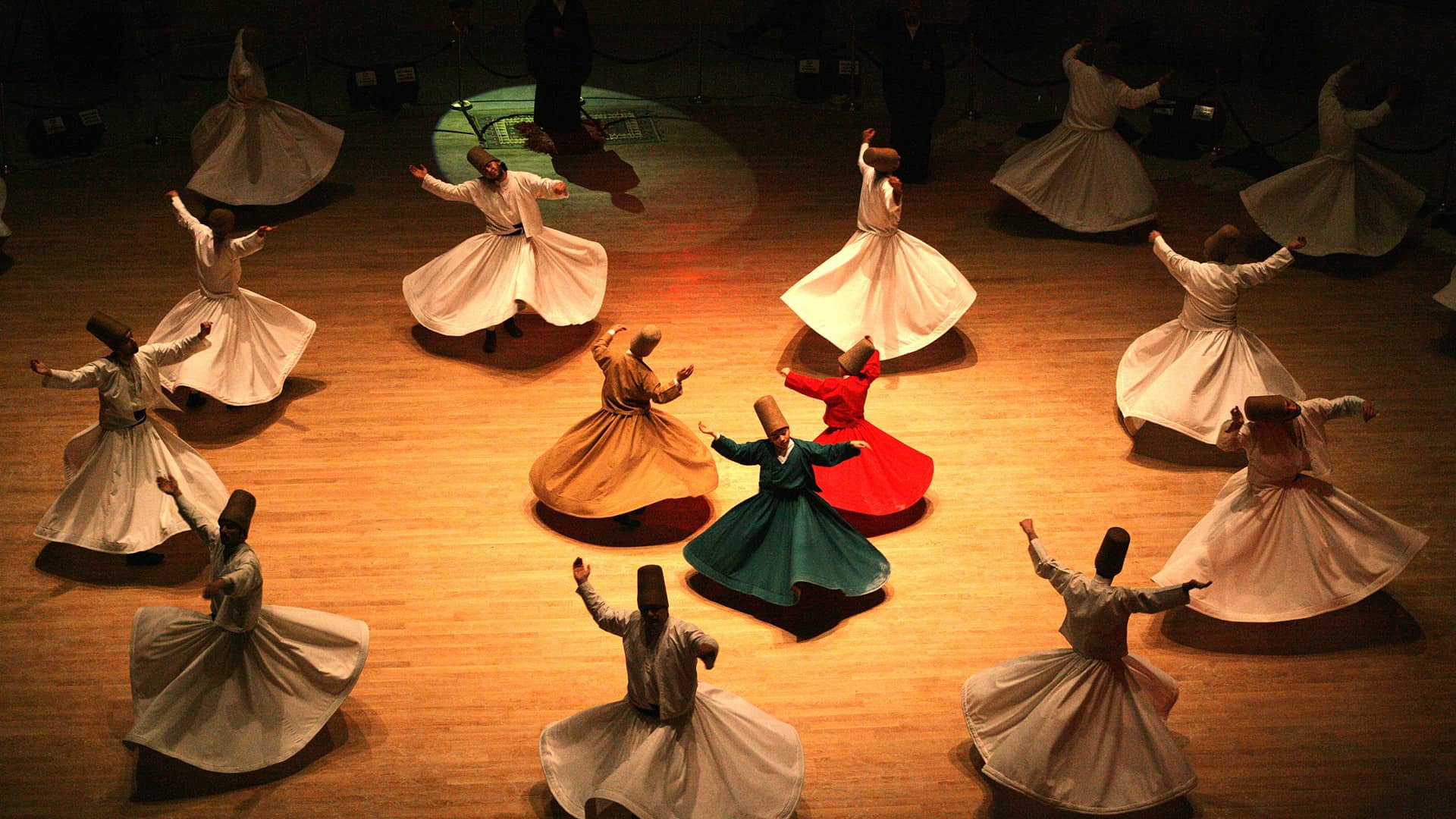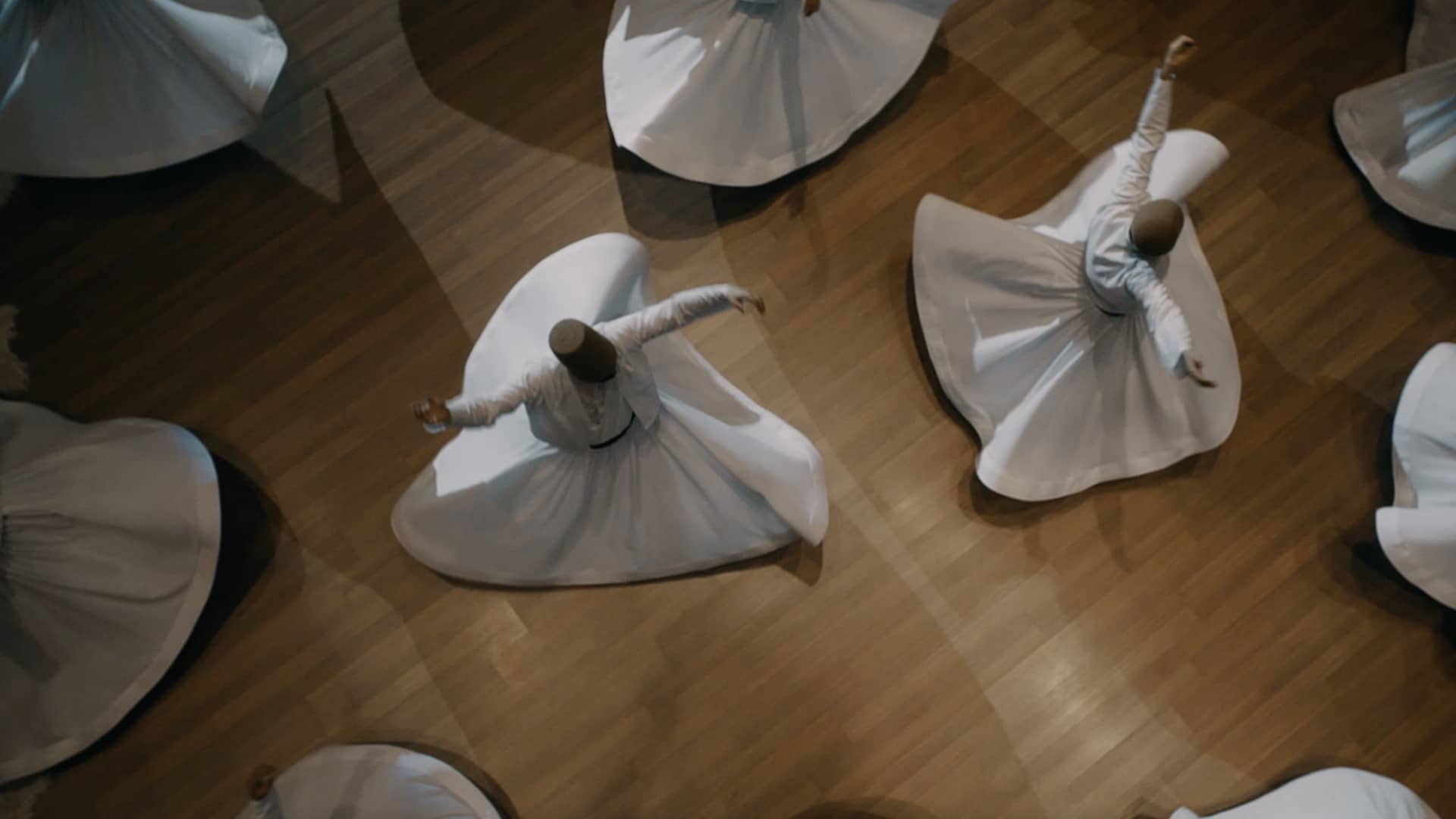

Seb-i Arus
“Goodbyes are only for those who love with their eyes. Because for those who love with heart and soul, there is no such thing as separation.” – Mevlana
Seb-i Arus is the night Mevlana died. He calls it the Wedding Night, which he considers the night of reunion with his beloved God. The ceremonies that are held in the weeks that coincide with the 17th of December on the anniversary of Mevlana's death are called the Vuslat Anniversary International Commemoration Ceremonies. They are also known as "Seb-i Arus (wedding night)" among people.
The concept of "Wedding Night" is not meant to be taken literally but serves as a powerful metaphor to convey the intensity and intimacy of the spiritual journey. The death of the physical body, particularly in the case of Mevlana, is seen as the soul's reunion with the divine, which is often described in terms of a profound and intimate connection akin to a spiritual marriage.
In Sufi poetry and philosophy, particularly in Mevlana's works, the relationship between the seeker (the human soul) and the divine is often portrayed as a journey of love and longing. The ultimate goal is to achieve a state of union or closeness with the divine, where the individual soul merges with the divine source. This metaphorical union is likened to a wedding, emphasising the deep and intimate connection between the lover (the seeker) and the Beloved (the divine). So, when Seb-i Arus is referred to as the "Wedding Night," it's a poetic and symbolic expression. Using such metaphors adds a layer of richness and depth to understanding the mystical journey in Sufi philosophy.
To understand this philosophy better, it is crucial to mention the Mevlevi congregation. Also known as the Whirling Dervishes, the Mevlevi congregation is a core part of Sufism. The Mevlevi tradition is known for its unique form of spiritual practice, which includes the famous Sufi practice known as the Sama, or whirling. The connection between the Sufism and Seb-i Arus is deeply rooted in history.
Seb-i Arus, or the anniversary of Mevlana's death, holds special significance for the Mevlevi congregation. They consider Mevlana to be their spiritual master. Hence, they see Seb-i Arus as a symbolic commemoration of Mevlana's union with the divine, emphasising the idea that death is merely a reunion with the Beloved.
Seb-i Arus ceremonies
During the Seb-i Arus ceremonies, Sufis engage in various spiritual practices, including prayers, recitations of Mevlana's poetry, and the practice of the Sama. The Sama is a ritualised form of whirling that is not merely a physical practice but a deeply spiritual one aimed at reaching a state of spiritual closeness to the creator. The whirling motion is symbolic of the planets and celestial bodies orbiting the sun, reflecting the Sufis’ commitment to the divine power. Seb-i Arus is a time for reflection on spiritual teachings, love, and the mystical journey. The concept of union with the divine is central to Sufi philosophy, and Mevlana's poetry often explores themes of love, unity, and the soul's journey towards spiritual enlightenment.
The Seb-i Arus ceremonies attract people from different cultures and faiths to witness the spiritual rituals and experience the universal message of love and unity conveyed through Mevlana's teachings. People from various backgrounds and religious traditions participate in Seb-i Arus ceremonies, emphasising Mevlana's philosophy's universal and inclusive nature. The ceremonies often take place in the city of Konya, where Mevlana's tomb is located, but they are also observed in other parts of Türkiye and the rest of the world by admirers of Mevlana's poetry and philosophy.
These ceremonies serve as a powerful reminder that Mevlana's teachings transcend borders and bring people together in their shared pursuit of love and unity. The global reach of these ceremonies highlights the enduring impact of Mevlana's philosophy on individuals from all walks of life, fostering a sense of interconnectedness and understanding among diverse cultures and faiths.
You are invited to Konya to learn more about Sufism and to commemorate the anniversary of Mevlana’s death on December 17th.
“Come, come, whoever you are. Wanderer, worshipper, and lover of leaving. It doesn't matter. Ours is not a caravan of despair. come, even if you have broken your vows a thousand times. Come, yet again, come, come.” Mevlana




